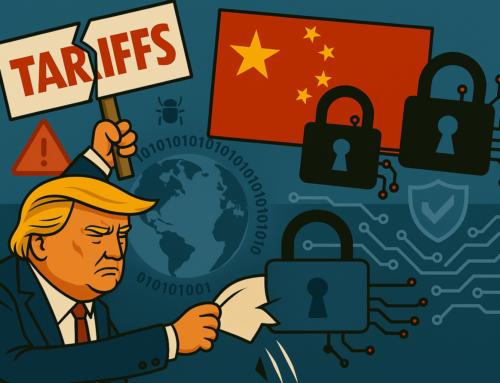Does your dealership have what it takes to attract the best talent? When it comes to hiring, business owners often promote their pay, benefits, culture, opportunities and other perks. What often gets overlooked–but should be included–is the state of their information technology (IT) infrastructure.
Millennials, in particular, are very technology savvy and expect workplaces to support their professional needs, habits and preferred methods of communication. If your dealership isn’t able to support Millennials’ IT expectations, you may experience greater turnover and more difficulty when recruiting the most talented members of this generation.
That may not seem like a big deal now; but within ten years Millennials will comprise 75 percent of the workforce. According to a study by Randstad Technologies, two-thirds of organizations have a plan or are currently forming a plan to address Millennials’ technology needs.
Auto dealerships with state-of-the-art IT infrastructures should be seriously bragging about it to their job candidates. Not only does it add a ‘cool factor’ to your incentives package, but investing in IT demonstrates that you care about your employees and you’re willing to do whatever it takes to help them be successful.
So, what types of workplace technologies are important to Millennials? The good news is their expectations are not outrageous. In fact, I’d argue their ideals set the benchmark standard for an IT infrastructure that supports efficient business operations. These technologies include:
Collaboration Tools
Recently I was talking to a dealer about a collaboration tool that comes standard with a Unified Communications Platform (UCP). The tool is similar in feel and function to Instant Messaging (IM). The dealer’s reaction was immediate: “I don’t want that. The employees will use it to screw around and won’t get any work done.”
Unfortunately, this thinking is very outdated. Have you ever seen a group of Millennials sitting together at a table? Have you ever noticed how they don’t talk to each other? They’re all texting to communicate with each other, as well as with others who are not physically present.
In the workplace texting is effectively replaced by collaboration, and Millennials love it. I’ve seen employees sitting in cubicles right next to each other, messaging each other instead of talking.
You may be skeptical of this behavior, but it doesn’t change the fact that this is the way Millennials prefer to communicate. And it doesn’t mean they’re screwing around. On the contrary, collaboration tools have been shown to increase responsiveness to fellow workers and to customers, and greatly reduce incidences of phone tag.
Today’s collaboration tools work across all devices, show the availability state of employees and can be used to send notifications and ask questions. They are designed with one purpose: to make communications more efficient, and they do exactly that.
Mobile-Friendly Networks
According to Social Media Week, Millennials check their phones more than 150 times per day. Hey, don’t fight it. Embrace it. At least you can be reasonably sure they won’t miss important messages from fellow employees and customers.
To accommodate this mobile-enabled generation, dealerships need to make sure they have enough wireless capacity. If you believe that your dealership has sufficient Wi-Fi, you’re probably wrong. In my experience, 90 percent of dealerships do not have sufficient Wi-Fi to handle the growing number of connected devices and new technologies that depend on them.
Many dealers are dismayed to discover that upgrades they made to their Wi-Fi network just two or three short years ago are no longer capable of supporting current data demands. In dealerships, increased wireless capacity is necessary for the following:
- Employee phones and tablets
- Customer phones and tablets
- Tools to perform over-the-air vehicle computer system updates
- Mobile tablets in the service lane
- Leasing and sales tools designed for mobile tablets
- Laptops connecting to your cloud-hosted CRM and DMS applications
- Smart appliances like coffeemakers and soda machines
- New location-based technologies and programs from vendors and manufacturers
In the past three years, the ‘Internet of Things’ has contributed to a 250 percent increase in the number of connected devices. The average dealership network must now support 80 to 100 connected devices. This trend shows no signs of slowing. According to Cisco, there will be another 250 percent increase in the next three years.
If you’re upgrading your dealership’s wireless network, don’t just update it to what is sufficient now. Update it so that it can handle three times your current traffic. That way you know you can handle future growth and you won’t have to upgrade again in two years.
Cloud Computing
More than any other generation, Millennials are very comfortable using mobile devices and various apps for scheduling, opening, reading, and sharing documents, accessing applications and a host of other work-related tasks.
In other words, don’t force a Millennial to perform all their work functions while chained to a desktop computer. They won’t like it. And why should they, when they can perform tasks just as efficiently using their phones or tablets?
This is where cloud computing comes in. Cloud-based applications offer better mobile functionality than applications installed on a server. When the latest version of a group-edited document is stored in the cloud, there is never any question as to which version of a document is the most updated one. Group comments on various projects can also be easily viewed.
Cloud-based applications are essential for supporting mobility, remote work, collaboration and communication; which we have just pointed out are all very important to Millennials.
As more Millennials join the workplace their needs will become a top priority for most businesses. During interviews, Millennials may not state technology as their number one priority; but trust me, the innate expectation is there. If you want your dealership to be a top choice for top talent, make sure you have a state-of-the-art IT infrastructure, then make sure you promote the heck out of it.








